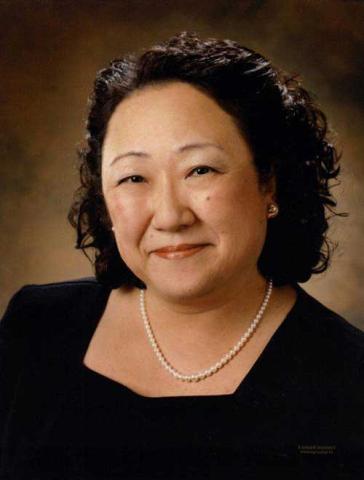White privilege doesn’t hinder day-to-day function.

Learning
Earlier this year I had to renew my car’s licence plate registration, so I went to my registry and took my place at the end of the line. In front of me was a White woman with her teenage son, and in front of them was an Asian man in his 30s. I was pleased because the line was short. One of the clerks stood up and said, “Next.” What happened surprised me.
The woman and her son bolted for the chair in front of the clerk, and the woman sat down. I moved ahead in the line and informed the Asian man that he was supposed to be next. He looked apologetic and said that it was “just for my passport” in accented English. I thought that he may have recently immigrated to Canada. He gave off a sense of resignation, as if it was expected that White people had the right to take his turn away from him. I made sure that he was served the next time a clerk was free. I encouraged him to “go, because it is your turn.”
I left the registry feeling troubled. I am a little Japanese woman with greying hair, and I hold the privilege of a university education and 41 years as a practising family doctor. I realize this gives me a certain kind of gravity that encourages me to be outspoken with the expectation of being heard. But I also see things from the point of view of an ethnocultural group that had been hated in Canada.
It reminded me of a time, 41 years ago, in another registry in Ontario when my fellow new interns and I were turning in our Alberta driver’s licences for Ontario ones. My two White male colleagues had no problems with the exchange. When it came to my turn, the clerk asked me for my passport—which I did not have with me, of course! I asked her why I was asked for a passport and not my friends. She was about to dismiss me when I firmly said that I wanted to speak to her supervisor. Why should I have to prove that I was Canadian when one of my friends was American? The supervisor came, assessed the situation, and told her to give me the licence.
Some of my White friends say that they do not understand the concept of White privilege. My experiences illustrate the invisible extra power one holds when they are White, speak English with a westernized accent, and have a postsecondary education. I am not saying that my White friends wield that power deliberately to get what they need, but that their ethnicity has never hindered their day-to-day function.
Faith Reflection
It makes me think of Jeremiah 22:3 where the Lord says: “Do justice and righteousness, and deliver from the hand of the oppressor him who has been robbed. And do no wrong or violence to the resident....” We who hold the privilege of living in our comfort zone should be mindful of those who experience unjust and unfair treatment because of their colour. God would like us to look out for those who are treated unfairly and who experience harm or humiliation in our society.
I would like to offer a prayer:
Creator God, thank you for the wonders of the world that we live in. Help us to remember that we are made in your image and that we are all your children, meant to live in loving relationship with one another. Help us to be mindful of the responsibility that each of us has our own invisible privileges and to use those privileges to help all that we meet each day. AMEN.
Living It Out
Suggestions for congregational engagement:
- Ask people to think of times in their lives when being White has provided an advantage that would not be there if they were people of colour—for example, being served first in a restaurant.
- Ask people to consider examples of times in the United Church where being White has provided an advantage. Consider how you can be a friend to someone who is experiencing discrimination. Remembering to follow their lead and wishes, what can you do to be supportive?
—Kathy Yamashita (she/her) was born and raised in southern Alberta on a potato farm near Vauxhall, surrounded by several other Japanese-Canadian families on potato farms who had decided to settle in Alberta instead of returning to Vancouver where they had lived before World War II. She attended the University of Lethbridge for a Bachelor of Arts and Science degree, and then completed medical school at the University of Calgary. She has been a family doctor in Lethbridge, Alberta, for 41 years. Kathy is a member of the Southern Alberta Japanese United Church in Lethbridge.